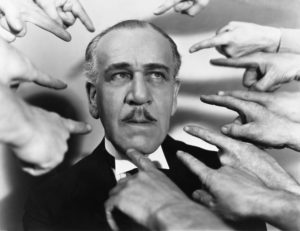The Lost Principle of Managing Criticism

Visit My Store
An emotionally mature person knows how to admit mistakes and can accept criticism with grace and humility. Emotionally mature people listen to criticism and ask themselves if what they are hearing is true. They do not get defensive or angry when someone doesn’t say what they want to hear. Often, the way a person is brought up plays a huge part in determining whether or not a they can handle criticism.
People who are placed on a pedestal when they are young will believe they can do no wrong and will have a difficult time when anyone criticizes them. At the other end of the spectrum, people who are raised in an environment where they were constantly criticized when they were young will also have a very tough time when anyone criticizes them. Often, people from both types of environments isolate themselves and ultimately have a real problem being around others for fear of hearing something that they don’t like.
I was brought up in a family where criticism was the rule, not the exception. My mother’s criticism had an extremely cruel edge to it as well. She was an expert at making each one of her children, including me, feel like a bad person. When I began my career as a teacher, I was twenty two years old. I was a special education teacher in a middle school in a inner city school in New Jersey. My class was made up of the toughest, most violent kids in the school. Their behavior was terrible and I had a tough time controlling the class. On one occasion very early in the school year, I was observed by the vice-principal. He came into my room unannounced and watched me teach for a full hour. My kids were not well behaved but I didn’t think they were as bad as they usually were.
About five days later, the vice-principal sat down with me to go over my performance evaluation. I was nervous since performance evaluations determined whether or not teachers get rehired.I knew very well that performance evaluations are designed to point out to the teacher some strength but mostly weaknesses that needed improvement. I knew I had to get myself ready for some criticism when during this conference. When the vice principal went over his findings with me, there wasn’t one positive remark in the evaluation. Every category was checked as either unsatisfactory or needs improvement. A mature reaction on my part would have been to engage my boss in a discussion so I could find out what he wanted me to do to improve. Instead, because of my knee-jerk reaction to any criticism whatsoever, my blood started to boil. I want you to understand that I knew my this was a fine administrator and a real gentleman. Knowing this, I should have realized that he was just doing his job and actually trying to help me. Unfortunately, that thought never entered my mind. Instead, I was having my immature, emotional reaction to him.
A day later, I went straight to the union representative and had him look at the evaluation. He immediately scheduled a meeting between himself, the principal, the vice principal and me. The principal of course supported the vice principal’s findings in the evaluation but he gave me a suggestion that actually leaked through my thick head. He told me to go over to another school and observe another class like mine and see if I could get some help. I scheduled time and went over to the other middle school in the district and started to observe a veteran teacher work with students who were as tough if not tougher than the students that I had in my class. This teacher had been in the district for many years and had developed so many effective techniques that he never really had any behavior problems. He was a kind, giving man and really took he under his wing. We became good friends. I learned from him and I became a better teacher.
The principal observed my classroom about four weeks later. This time there were positive things going on in my classroom. The kids being were pretty much on task and stayed in their seats. It actually looked like a classroom, not the circus. My new evaluation was great and assured me that my hard work was recognized. Even though I had had an immature reaction to the first performance evaluation, I had luckily listened to the one recommendation of the principal to visit another classroom. I started out very reactive but, with the help of others, finally realized there was a lot of truth in the criticism that had been included in that evaluation. It probably saved my job.





